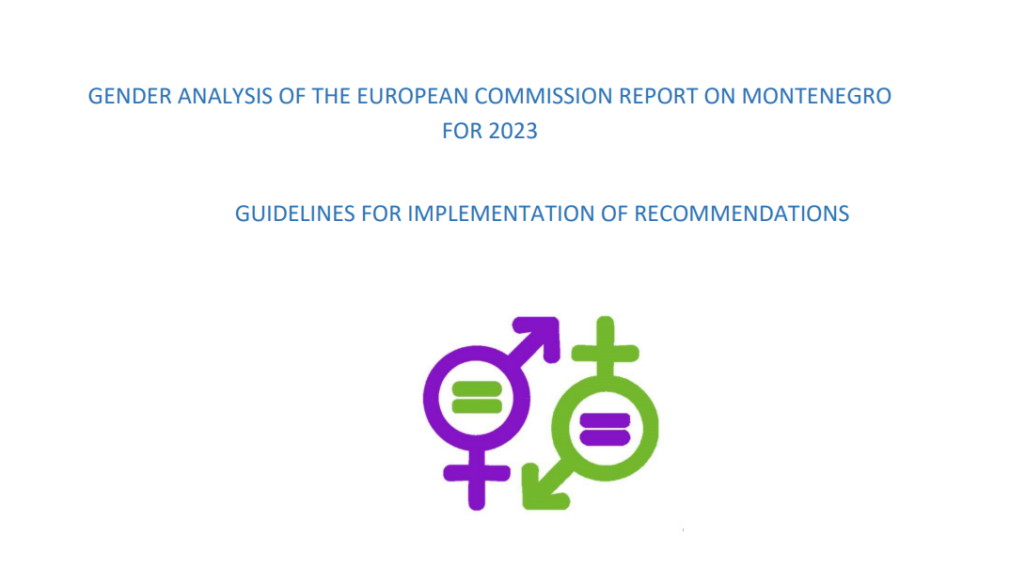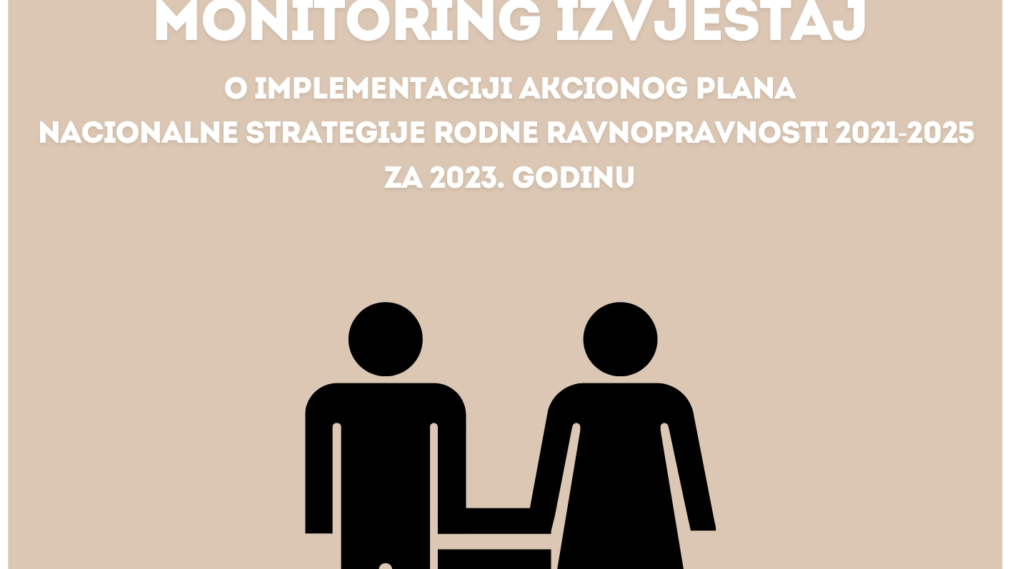2470Views 0Comments

Open letter to the President of the Parliament
WRC addressed an open letter to Mr. Aleksa Becic, the newly elected President of the Parliament of Montenegro. WRC congratulated the President on the election, regarding it as an opportunity to transform the Parliament into a true representative home of all its citizens.
The letter states that gender equality is a fundamental value of every democratic society, guaranteed by the Constitution of Montenegro and relevant international documents. It is also one of the fundamental rights promoted and protected by the European Union throughout the accession process of Montenegro. The complete dynamics of accession are dependant on the reforms of gender equality policies in the rule of law and human rights protection.
Bearing in mind the key role of the Parliament in the processes that should ensure a better position of women in Montenegro through gender-sensitive fulfillment of its representative, legislative and supervisory functions, WRC wants to draw attention to the need to transform the Parliament into a true house of representatives and citizens.
We believe that it is known that, although they make up more than 50% of the population of this country, women in Montenegro continuously make up less than a quarter of its House of Representatives. Specifically, in the new convocation of the Assembly there are only 22% of women, who cover a total of 18 out of 81 seats, which is three times less than in the previous convocation. These figures are far below the expectations of Montenegrin women, but also below the expectations of our partners from the European Union, as recently noted by Mr. Tonino Picula, the European Parliament’s rapporteur for Montenegro.
The insufficient number of women in the Parliament of Montenegro is a direct consequence of their low ranking on the electoral lists of political entities, which we believe would be even smaller without the existing quotas for the under-represented sex. The results of the last elections warn us of the need for stronger promotion and improvement of women’s political participation, but also greater political readiness to make more concrete progress towards greater representation of women in the Parliament of Montenegro.
The gender structure of the new convocation of the Assembly, as it is, is not a good message for promoting gender equality. However, this does not mean that responsible and gender-sensitive management of this institution cannot to some extent alleviate the large disproportion in the percentage of women in the Montenegrin population in relation to their representation in the Assembly. Particular responsibility for all MPs is to make special effort to consider issues of importance for Montenegrin society at every opportunity and from the perspective of the needs, interests and experiences of all their fellow citizens, especially those who belong to multiple marginalized groups.
We expect the following from the new Assembly:
• Gender-sensitive approach in the selection of the composition of the working bodies of the Assembly, where women will make up at least 30% of the membership of all working bodies and at least 30% of the leadership. This measure would show the political will of parliamentary entities to respect the spirit of the current election law, which sought a minimum representation of 30% of women in the House of Representatives and that women in the Parliament of Montenegro are adequately represented at each table where topics of importance for Montenegrin society are discussed.
• Amendments to the Law on the Election of Councilors and Deputies in the direction of increasing quotas for women on electoral lists. We request that, for the verification of electoral lists, a legal condition be provided that, instead of the current “one out of four”, at least one of every three candidates in the order on the electoral list must be a representative of the under-represented sex. This measure would guarantee a certain increase in the number of female deputies and facilitate the achievement of a minimum of 30% of women included in the work of Montenegrin Parliament.
• Adoption of a resolution on the promotion of gender equality, which would publicly and politically bind both the Assembly as a whole and the deputies individually to give their contribution to achieving equality between men and women in Montenegro.
• Adoption of the Action Plan for strengthening the gender sensibility of the Assembly. This strategic document would envisage activities in the direction of engendering the Parliament of Montenegro, laying down deadlines, indicators of success, as well as responsible persons.
• Strengthening the capacity of the Parliament to achieve adequate level of quality in performing the legislative and supervisory function from the aspect of improving the gender perspective and achieving gender equality in Montenegro.
• Intensified cooperation with organizations and individuals dealing with the human rights of women and girls, especially members of marginalized groups – Roma women, women with disabilities, LGBT women, women affected by poverty, women with experience of violence, etc.
The fact that there were no women in the recent negotiations between three winning coalitions on the composition of the new Government deeply concerns us regarding the future of inclusiveness of the political decision-making process, the gender structure of the future Government and its gender sensitivity. On this occasion, we have already addressed the leaders of the three coalitions, demanding the inclusion of at least 30% of women in the process of negotiations on the composition of the future Government, but to date we have not received any response. It goes without saying that we are disappointed with the irresponsible and short-sighted attitude of the parliamentary majority, from which we expected and still expect much more in terms of gender-sensitive and inclusive political action, including better positioning of women in party structures.
Women’s Rights Center demands from the Assembly as a House of Representatives, parliamentary political entities, as well as individual deputies to actively contribute by their own example to recognizing and transforming discriminatory practices and cultural beliefs that limit the role of women in society.
We ask our political representatives to serve as an example of protection and promotion of equality in Montenegro.
We ask the Parliament of Montenegro to send a clear message that women have a place in the public and political life of Montenegro and at all levels of decision-making.
However, change for the better is only possible if the Assembly shows that there is a clear political will to protect gender equality and promote women’s political and other rights by providing an appropriate legal framework and taking responsibility for achieving measurable results in that direction.
With the hope of a more gender-equal future, Women’s Rights Center will, as it did before, continue to monitor with great attention all gender aspects of the functioning of the Assembly.
Every sincere initiative of the Assembly in the direction of strengthening gender equality and political participation of women will have our full support, while any lack of sensitivity to issues of importance to women in Montenegro will be the subject of our sharp criticism.


